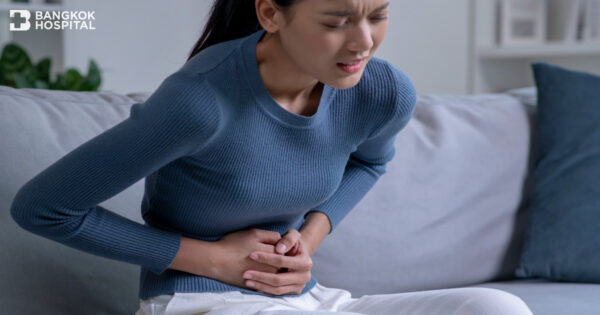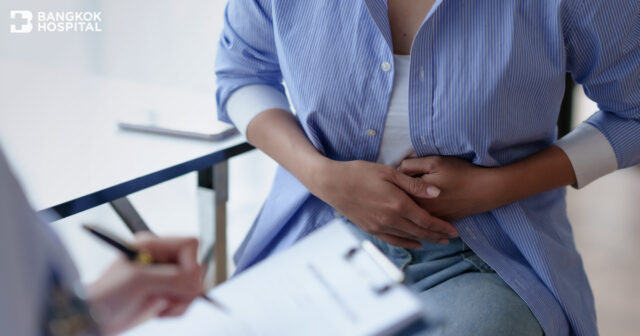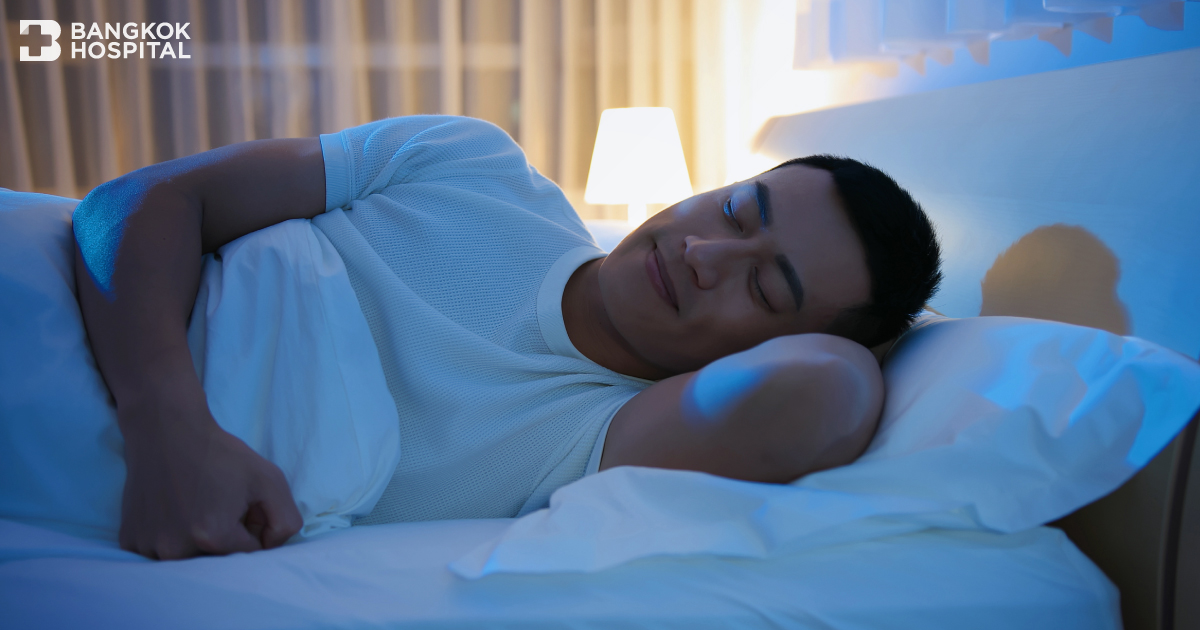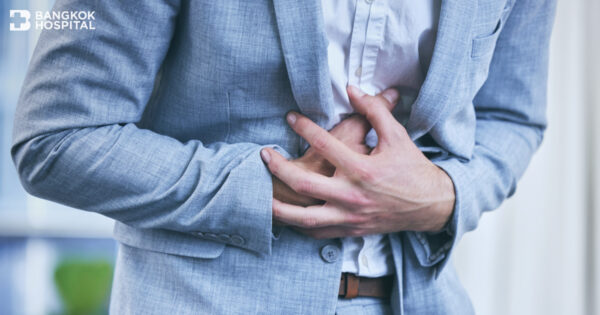If you experience consistent upper abdominal pain as well as other abnormalities in your digestive system, you need to have upper endoscopic examination to determine, evaluate and treat your problems from an early stage so you restore your quality of life right away.
What is Upper Abdominal Endoscopy?
It is a procedure to diagnose your upper digestive tract from the esophagus all the way to the small intestines by using small scope with light at the end. The image will come from the scope at the tip of the fiber. This procedure can treat and perform biopsy for further pathological examination.
Who Should Get Endoscopic Examination?
- Have bleeding in the upper abdomen
- Have constant upper abdominal pain even after being treated
- Upper abdominal pain associated with other symptoms of suspected serious disease, such as loss of appetite, weight loss, or conditions found in patients aged 45 years and over
- Difficulty swallowing or painful swallowing
- Have constant gastric acid reflux or recurrence even after the treatment
- Consistent vomiting with no known cause
- Show sign of ulcer or tumor in abdominal in imaging test
- Patients who need biopsy, collect liquid or content in the stomach for testing
- Assessment for any corrosive injury
- Need to remove foreign objects, tumor, or have tumor ablation from the upper abdomen
- Need to insert feeding tube such as PEG or PEJ
- Need to treat narrowing of the digestive tract by inserting a tube or injection
Pre-procedure Preparation
- Refrain from eating and drinking anything at least 6 hours prior to the procedure to prevent aspiration
- Disclose any allergy to medication, current medical status including medication, especially any anti-coagulants to determine whether they should be stopped prior to the procedure or not
- Dentures should be removed on the day of the procedure to prevent displacement and airway blockage
- Arrive for the appointment at least 30 minutes in advance.
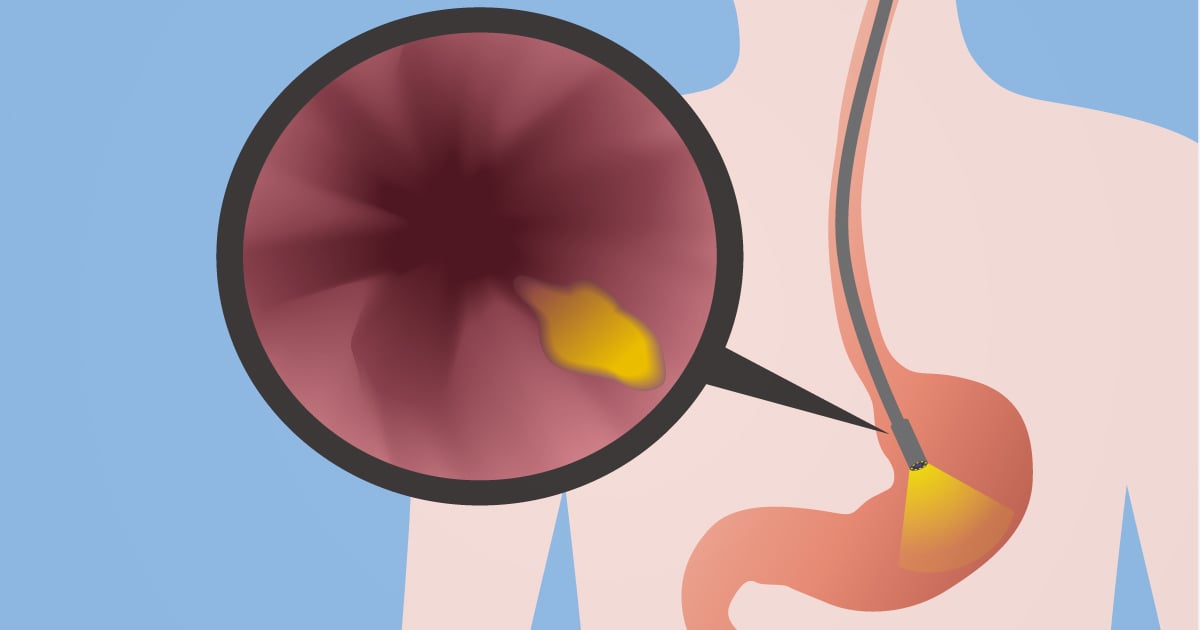
Post-procedure Care for Abdominal Endoscopy
- Patients who are sedated will be resting for 1-2 hours or until they are fully recovered to observe the vital sign after the treatment
- Numbness in the throat should go away within 1 hour. During this time, avoid food and drink until the numbness subsides. Then try to take a sip of water. If you are not choking, you can eat and drink normally.
- Visit your doctor as scheduled. For those who have biopsy, the result will be ready within 5-7 days.
- The first meal after the treatment should be food that can be easily digested. Afterward you can have normal food.
- Observe any abnormalities such as if you have esophagus dilation during the procedure and have severe pain in the neck, chest, difficult breathing, or can feel an air lump in their neck, must see the doctor immediately.
- If you experience severe stomach pain, fever, cough, tiredness, or vomit with blood or bloody stool, you need to see the doctor immediately.
- For patients who are 80 years or over, hospital stay for at least 1 night observation is recommended.
What Are Side Effects of Abdominal Endoscopy?
- Neck pain from scope friction
- Numbness in the throat from anesthesia
- Stomach bloating as a result of the air introduced during the examination but the condition will improve after the body expel gas
- Dazed from sleeping pill or allergic action from drugs
Advantages of Abdominal Endoscopy
- Doctor can diagnose correctly
- Tumor can be removed during the procedure
- If you suspect there is malignancy, doctor can perform a biopsy and send for pathological examination immediately
- Less pain and no wound from surgery
Upper Abdominal Endoscopic Specialist
Dr. Prapat Samitisatian, Internal Medicine Specializes in GI and Liver, GI and Liver Center, Bangkok Hospital
Hospital Specializes in Upper Abdominal Endoscopy
At Bangkok Hospital, our GI and Liver Center is ready to provide consultation about any gastrointestinal problems, diagnostic endoscopy, state-of-the-art treatment for your precious quality of life.



